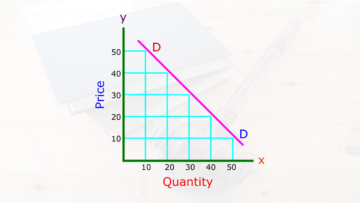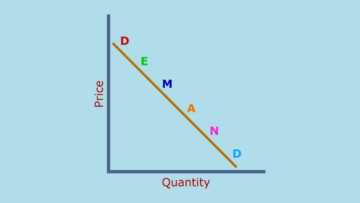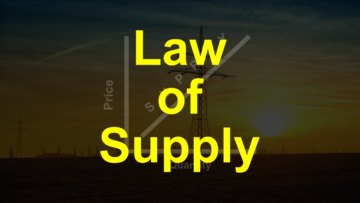There are many types of markets available in the market which differ from each other due to some reason and this difference can be buyer, seller, product, etc. As each market has its own features, components, etc. it becomes easier to know and assess the markets. One of these different types of markets is the monopsony market.
A Monopsony market is a part of an imperfect competition market, and it has only one buyer and a large number of sellers, and it is just opposite to a monopoly market because a monopoly market has only one seller and a large number of buyers and in this market, there is only one buyer and a large number of sellers. A monopsony market is rarely seen because to form this market, a special resolution has to be obtained from the governing authority.

Table of Contents
What is a Monopsony Market?
A monopsony market is a market (situation) in which there is only one buyer and a large number of sellers, and all the sellers sell the product to only one buyer and buyer has good knowledge about the products. Due to the large number of sellers in this market, substitute products are available, and the buyer has a lot of choices. Due to there being only one buyer, the buyer has influence in this market and the buyer can use bargaining power.
In this market, the competition among the sellers is high because there is only one buyer and there are a large number of sellers and all the sellers want the buyer to buy the product from them only for which they may have to do many things like advertising, promotion, offers, etc. There cannot be more than one buyer in this market, even if it happens somehow, it will no longer be a monopsony market because there can be only one buyer in this market.
Features of Monopsony Market
Following are the features of monopsony market:
1. Only One Buyer:
In this market, there is only one buyer to whom all the sellers sell the product and the buyer has influence in this market. Due to having only one buyer and influence in the market, the buyer is known as the king or queen in this market and the buyer gets more priority than the sellers.
2. Large Number of Sellers:
There are a large number of sellers in this market who sell the product to only one buyer. Since there is only one buyer in the market, all the sellers prepare the product according to the buyer’s choice, interest, etc. but the buyer has many choices as to from whom he wants to buy the product. No seller can force the buyer to buy the product, but he can convince him to buy the product.
3. Substitute Products:
In this market, due to the large number of sellers, there is a substitute of products available, and the buyer can buy the product from whomever he wants, but the seller cannot sell it to whomever he wants. In this market, the seller alone cannot increase the price of the products, because by doing so he may lose the buyer.
4. Bargaining Power:
Since there is only one buyer and a large number of sellers in the market, the buyer has bargaining power, but it is up to the buyer whether he wants to use it or not. If the buyer wants to use the bargaining power, then the seller may have to agree to bargain because the seller has only one buyer, but the buyer has many sellers.
5. Selling Cost:
Due to there being only one buyer and a large number of sellers the competition among the sellers is high due to which the seller has to spend on many things like advertising, promotions, offers, etc. that is why the selling cost is high in this market but in some situation, there may be no selling cost.
6. Competition:
In this market, there is only one buyer and the number of sellers selling products to that buyer is very high due to which there is a lot of competition among the sellers. Every seller wants to sell only his product to the buyer for which he uses advertisements, offers, etc. but it is the buyer’s choice from whom he buys the product.
7. Barrier to Entry:
There is a barrier to entry of a new buyer in this market because according to the concept of this market, there can be only one buyer in the market. If there are more than one buyer in the market, then it is called a duoposony market or an oligopsony market, or any other market, not monopsony market. In this market, the governing authority also helps that no new buyer can enter the market.
Read Also:
- What is Market? Meaning, Features, and More.
- Types of Market
- What is a Perfect Competition Market? Meaning, Features, and More.
- What is a Monopolistic Competition Market? Meaning, Features, and More.
- What is a Monopoly Market? Meaning, Features, and More.
- What is a Duopoly Market? Meaning, Features, and More.
- What is Duopsony Market? Meaning, Features, and More.
- What is an Oligopoly Market? Meaning, Features, and More.
- What is Oligopsony Market? Meaning, Features, and More.
- What is Bilateral Monopoly Market? Meaning, Features, and More.
QNA/FAQ
Q1. What is a Monopsony Market?
Ans: A monopsony market is a market in which there is only one buyer and a large number of sellers.
Q2. Are there substitute products available in a monopsony market?
Ans: Yes, due to the large number of sellers, substitute products are available in a monopsony market.
Q3. Which market is the opposite of a monopsony market?
Ans: Monopoly Market
Q4. What is the number of buyers in a monopsony market?
Ans: One
Q5. Is number of sellers large in monopsony market?
Ans: Yes
Q6. Write the features of the monopsony market.
Ans: Following are the features of monopsony market:
1. There is only one buyer in this market.
2. There are a large number of sellers in this market.
3. This market is a part of imperfect competition.
4. Substitute products are available in this market.
5. The buyer has bargaining power in this market.
6. Selling cost is found in this market.
7. The competition among the sellers is high in this market.
8. There is a barrier to entry for a new buyer in this market.
9. The buyer has influence in this market.













